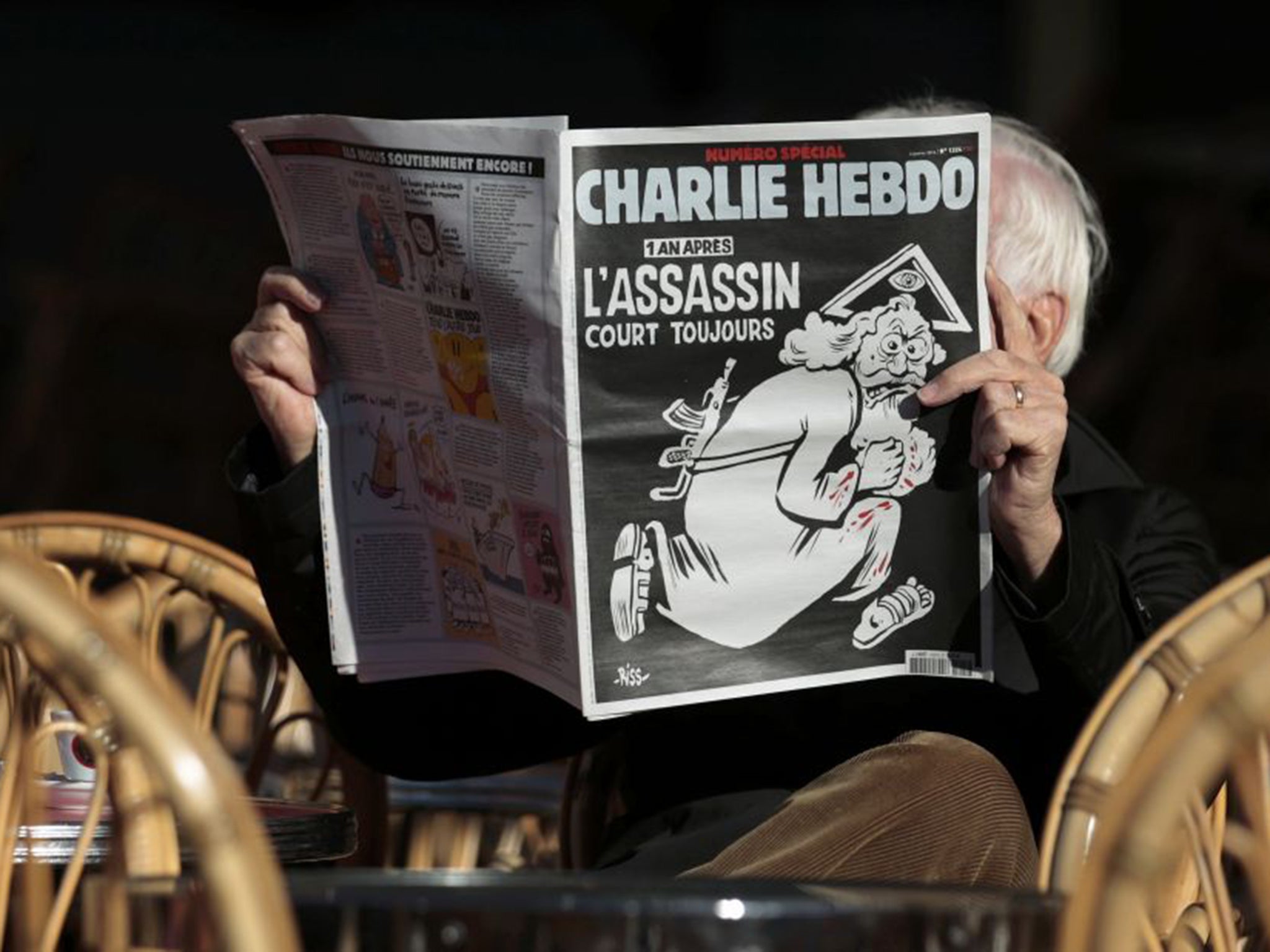Charlie Hebdo criticised for calling Brussels attacks tip of Islam 'iceberg'
Magazine suggests bombings in Belgium are ‘visible part of a very large iceberg’

Your support helps us to tell the story
From reproductive rights to climate change to Big Tech, The Independent is on the ground when the story is developing. Whether it's investigating the financials of Elon Musk's pro-Trump PAC or producing our latest documentary, 'The A Word', which shines a light on the American women fighting for reproductive rights, we know how important it is to parse out the facts from the messaging.
At such a critical moment in US history, we need reporters on the ground. Your donation allows us to keep sending journalists to speak to both sides of the story.
The Independent is trusted by Americans across the entire political spectrum. And unlike many other quality news outlets, we choose not to lock Americans out of our reporting and analysis with paywalls. We believe quality journalism should be available to everyone, paid for by those who can afford it.
Your support makes all the difference.The editors of the French satirical magazine Charlie Hebdo are facing criticism for an article linking the Brussels terror attacks to ordinary Muslims in Europe.
In an editorial entitled “How did we end up here?” the magazine which suffered its own terror attack on 7 January 2015 gave its response to the bombings in Belgium two weeks ago which killed 32 people.
“In reality, the attacks are merely the visible part of a very large iceberg indeed,” the article suggests, before describing a terror attack as the “end of a philosophical line” for a society which tolerates women wearing burqas or bakers not offering ham or bacon.
Charlie Hebdo’s authors argue: “This is not to victimise Islam particularly. For it has no opponent. It is not Christianity, Hinduism nor Judaism that is balked by the imposition of this silence. It is the opponent (and protector) of them all. It is the very notion of the secular. It is secularism which is being forced into retreat.”
The article has been condemned by campaigners for diversity in the media, particularly after Charlie Hebdo was last year awarded the PEN “Freedom of Expression Courage Award”.
Media Diversified suggested the article “slandered individuals who practice Islam” as well as Islam itself, adding that the former “results in violence we have seen against young women and elderly men”.
The Al Jazeera presenter Mehdi Hasan tweeted a range of criticisms of the article, including an opinion piece in response to Charlie Hebdo by the Nigerian-American writer Teju Cole.
Cole said he had to "carefully scrutinise" the piece before he believed it genuinely came from Charlie Hebdo, and that the authors "finally step away from the mask of 'it's satire and you don't get it' to state clearly that Muslims, all of them, no matter how integrated, are the enemy".
He wrote that reading the editorial it was “hard not to recall the vicious development of "the Jewish question" in Europe and the horrifying persecution it resulted in”.
“Charlie's logic is frighteningly similar: that there are no innocent Muslims, that ‘something must be done’ about these people, regardless of their likeability, their peacefulness, or their personal repudiation of violence,” Cole writes.
“Such categorization of an entire community as an insidious poison is a move we have seen before.”
Join our commenting forum
Join thought-provoking conversations, follow other Independent readers and see their replies
Comments